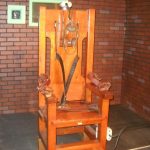Conditionals – advanced
Now that you’re familiar with Conditionals O, I, and II, let’s look at the more advanced Conditionals.
The past conditional, also known as conditional III or the past unreal:
This conditional is used when someone wishes they had done something earlier to change a result they don’t like. They are often saying that they are sorry that the result is bad. In this kind of conditional the truth is the opposite of the condition.
The pattern is: past perfect in the if clause, and would have + past participle in the main clause.
Examples:
If you had called me last night, I would have come over right away.
(The truth is that you didn’t call me, and that’s why I didn’t come over.)
If Jenny had studied harder for the test, she wouldn’t have failed it.
(The truth is that Jenny didn’t study very hard for the test, and that’s why she failed it.)
If Jason had set his alarm, he wouldn’t have been late to class.
(The truth is that he didn’t set his alarm, and that’s why he was late to class.)
If they had been on time, they would have heard about the room change.
(The truth is that they were late, so they didn’t hear about the room change.)
To make any of these conditionals negative, put not, or another negative word such as never, hardly, hardly ever, seldom or rarely between the first two verbs.
Examples:
If he hadn’t been honest, he wouldn’t have told the police anything.
If she had never seen a kangaroo, she would hardly have known what they look like.
If her boyfriend hadn’t lived in Vancouver, she would rarely have gone there.
With the word would and had, you can shorten them both to ‘d, and with have, you can shorten it to ‘ve.
Example:
If we‘d been on time, we‘d have heard about the room change.
OR: If we‘d been on time, we would‘ve heard about the room change.
But with the negative not (n’t), don’t shorten had or would:
Example:
If we hadn’t been on time, we wouldn’t have heard about the room change.
Remember that in all these examples if the if clause is before the main clause, there’s a comma ( , ) at the end of that clause. If the if clause is after the main clause, then no comma is used.
Examples:
I wouldn’t have fallen asleep if the movie had been more interesting.
If I had won the lottery, I would’ve traveled around the world first class .
I would have lived in a better apartment if I had had more money.
If you had called me that night, I would have come over right away.
There are other modal verbs that can be used instead of would, such as could (ability) and might (possibility).
Examples:
If she had studied harder, she would have passed the test.
If she had studied harder, she could have passed the test.
If she had studied harder, she might have passed the test.
There are other ways to make conditional sentences, but these are more formal and less often used.
In Conditional I if can be replaced by should.
Examples:
If you’re in town on the third, you can come to my party.
Should you be in town on the third, you can come to my party.
If it rains, we’ll have to cancel the picnic.
Should it rain, we’ll have to cancel the picnic.
BUT: If the conditional is negative, do not use should.
Example:
If it’s not too expensive, I can come with you.
NOT: Should it not be too expensive, I can come with you.
In Conditional III if can be dropped, but the verb must be inverted.
Examples:
If she had been on time, we could have seen the beginning of the movie.
Had she been on time, we could have seen the beginning of the movie.
If I had remembered her birthday, I would have bought her a present.
Had I remembered her birthday, I would have bought her a present.
If he hadn’t been so sick, he might not have stayed in bed all day.
Had he not been so sick, he might not have stayed in bed all day.
There’s one last thing about Conditionals O, I, and II. You can use unless instead of if, but the sentence must be opposite.
Conditional O examples:
If I don’t get enough sleep, I feel tired the next day.
Unless I get enough sleep, I feel tired the next day.
If he is nice to her, she is nice to him.
Unless he is mean to her, she is nice to him.
Conditional I examples:
If you lend me some money, I can buy an iPhone.
Unless you lend me some money, I can’t buy an iPhone.
If you don’t tell me the truth, I won’t help you.
Unless you tell me the truth, I won’t help you.
Conditional II examples:
I told them that if we all worked together, we could finish by midnight.
I told them that unless we all worked together, we couldn’t finish by midnight.
If I were rich, I would send some money to my parents.
Unless I were poor, I would send some money to my parents.
Here is a review of all 4 conditionals:
General conditional (Conditional O):
If it rains, I take my umbrella.
Unless it rains, I don’t take my umbrella.
Future conditional (Conditional I):
If it rains tomorrow, I’ll take my umbrella.
Should it rain tomorrow, I’ll take my umbrella.
Unless it rains tomorrow, I won’t take my umbrella.
Present conditional (Conditional II):
If it rained, I would take my umbrella.
Unless it rained, I wouldn’t take my umbrella.
Past conditional (Conditional III):
If it had rained, I would have taken my umbrella.
Had it rained, I would have taken my umbrella.
Your Score:
Your Ranking:
Your Score:
Your Ranking:









